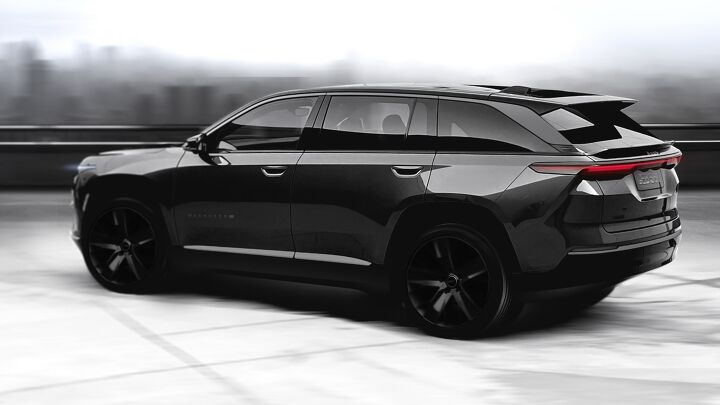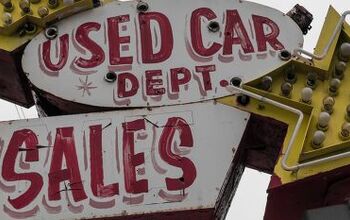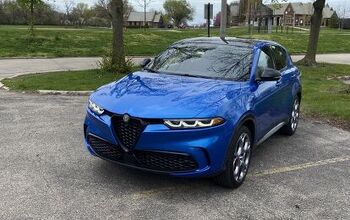Stellantis Vehicles Should Jump to Tesla's NACS Starting in 2026 UPDATED

Stellantis has been slow to roll out new electric models, so it’s not surprising to see the automaker being one of the last to join Tesla’s North American Charging Standard. That changed yesterday, as the automaker announced that it would begin offering the tech on some electrified vehicles starting in 2026.
We’ll see several new EVs from the automaker starting this year, from the Jeep Wagoneer S to the Ram 1500 REV. Though it doesn’t currently have a fully electric vehicle in the U.S. now, Jeep sells two plug-in hybrids, Chrysler has a PHEV minivan, and there are also the Dodge Hornet and Alfa Romeo Tonale PHEV twins. Those vehicles will should be able to use an adapter to charge on Tesla’s Supercharger network, while future models will get NACS charging ports at the factory.
Tesla’s charging network not only expands the number of available chargers to outside brands, but it’s generally viewed as offering a more reliable and seamless public charging experience, something every EV owner wants. At the same time, Stellantis is one of several automakers partnering to develop a separate charging network.
Called Ionna, the joint venture aims to build 30,000 chargers by the end of the decade, and they will be brand-agnostic, meaning any EV can charge. Improving the charging experience, including the availability of chargers, is a vital step needed to ensure continued EV adoption.
Editor's Note -- Stellantis reached out after publication to clarify that the listed vehicles should be able to charge with the Tesla standard, as opposed to "will." We've changed the wording and headline to reflect this.
[Image: Jeep/Stellantis]
Become a TTAC insider. Get the latest news, features, TTAC takes, and everything else that gets to the truth about cars first by subscribing to our newsletter.

Chris grew up in, under, and around cars, but took the long way around to becoming an automotive writer. After a career in technology consulting and a trip through business school, Chris began writing about the automotive industry as a way to reconnect with his passion and get behind the wheel of a new car every week. He focuses on taking complex industry stories and making them digestible by any reader. Just don’t expect him to stay away from high-mileage Porsches.
More by Chris Teague
Latest Car Reviews
Read moreLatest Product Reviews
Read moreRecent Comments
- Theflyersfan With sedans, especially, I wonder how many of those sales are to rental fleets. With the exception of the Civic and Accord, there are still rows of sedans mixed in with the RAV4s at every airport rental lot. I doubt the breakdown in sales is publicly published, so who knows... GM isn't out of the sedan business - Cadillac exists and I can't believe I'm typing this but they are actually decent - and I think they are making a huge mistake, especially if there's an extended oil price hike (cough...Iran...cough) and people want smaller and hybrids. But if one is only tied to the quarterly shareholder reports and not trends and the big picture, bad decisions like this get made.
- Wjtinfwb Not proud of what Stellantis is rolling out?
- Wjtinfwb Absolutely. But not incredibly high-tech, AWD, mega performance sedans with amazing styling and outrageous price tags. GM needs a new Impala and LeSabre. 6 passenger, comfortable, conservative, dead nuts reliable and inexpensive enough for a family guy making 70k a year or less to be able to afford. Ford should bring back the Fusion, modernized, maybe a bit bigger and give us that Hybrid option again. An updated Taurus, harkening back to the Gen 1 and updated version that easily hold 6, offer a huge trunk, elevated handling and ride and modest power that offers great fuel economy. Like the GM have a version that a working mom can afford. The last decade car makers have focused on building cars that American's want, but eliminated what they need. When a Ford Escape of Chevy Blazer can be optioned up to 50k, you've lost the plot.
- Willie If both nations were actually free market economies I would be totally opposed. The US is closer to being one, but China does a lot to prop up the sectors they want to dominate allowing them to sell WAY below cost, functionally dumping their goods in our market to destroy competition. I have seen this in my area recently with shrimp farmed by Chinese comglomerates being sold super cheap to push local producers (who have to live at US prices and obey US laws) out of business.China also has VERY lax safety and environmental laws which reduce costs greatly. It isn't an equal playing field, they don't play fair.
- Willie ~300,000 Camrys and ~200,000 Accords say there is still a market. My wife has a Camry and we have no desire for a payment on something that has worse fuel economy.


































Comments
Join the conversation
Are there any holdouts left?
I, SUPER SERIOUS TASSOS, APPROVE OF this.